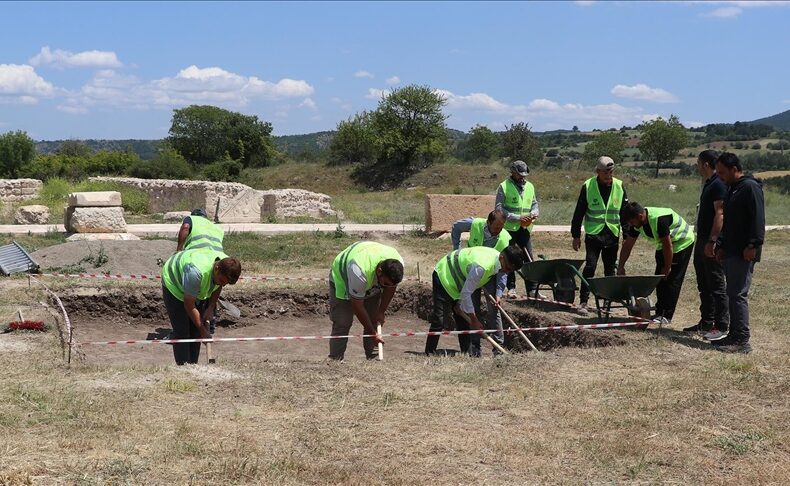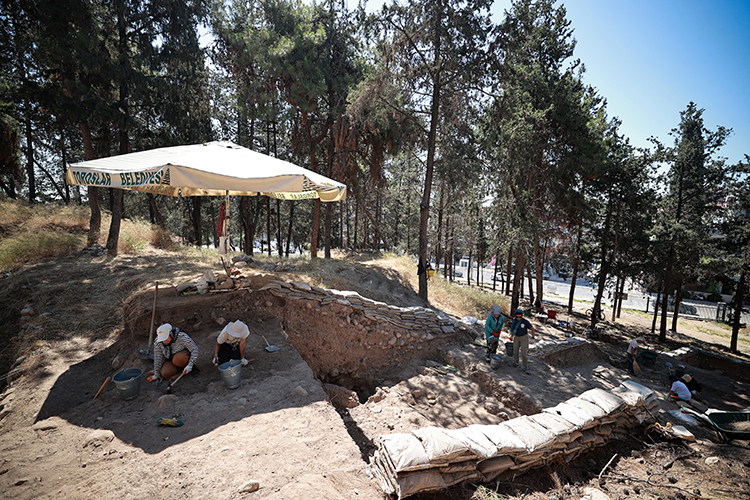
New Discoveries from the Early Bronze Age Unearthed at Yumuktepe Mound in Türkiye
Archaeologists in southern Türkiye have uncovered rare Early Bronze Age remains at Yumuktepe, one of the oldest continuously inhabited settlements in the world. The findings include a horseshoe-shaped hearth, a grain silo, and traces of ancient agricultural activity. Yumuktepe Mound, located in Mersin near the Mediterranean coast of Türkiye, continues to reveal its secrets through
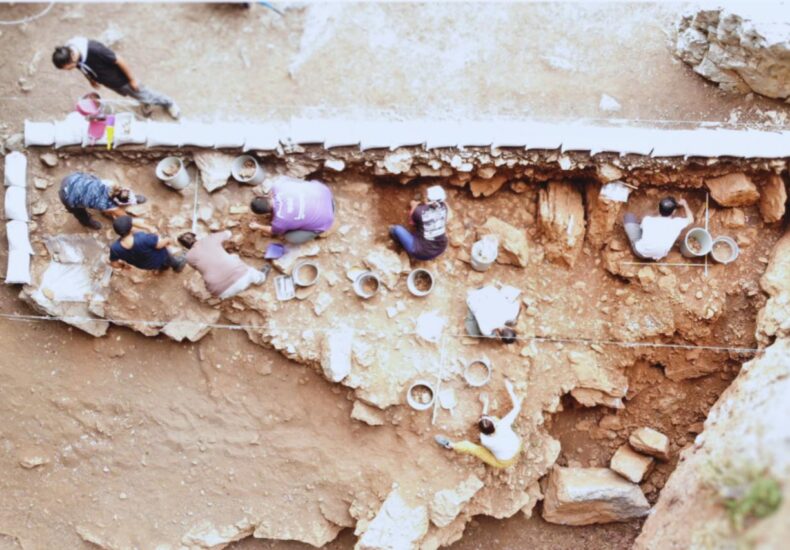
19,000-Year-Old Stone Figurines Unearthed in Türkiye’s Kızılin Cave Rewrite Prehistoric Art History
A groundbreaking archaeological discovery in southern Türkiye is reshaping our understanding of symbolic behavior and artistic expression in prehistoric Anatolia. Excavations at Kızılin Cave, located near Yağca in Antalya’s Döşemealtı district, have uncovered stone human figurines dating back nearly 19,000 years — the oldest known of their kind in the region. As reported by Koray
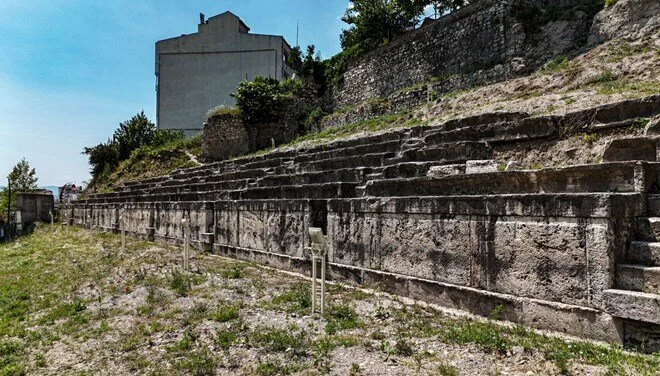
Ancient Roman Stadium of Bithynia in Bolu to Become Türkiye’s New Archaeological Highlight
The recently excavated ancient Roman stadium in the historic region of Bithynia, located near Bolu in northwestern Türkiye, is poised to open as a major archaeological attraction by the end of 2025. Discovered in 2008, this rare example of Roman sports architecture is the first stadium uncovered in Bithynia, a region rich in classical heritage

Carian Princess: The Enigmatic Queen of Bodrum from Thousands of Years Ago
In the heart of modern-day Bodrum, Türkiye, a remarkable archaeological discovery from 1989 continues to intrigue historians and visitors alike. During a routine construction inspection in the Yokuşbaşı neighborhood, a rock-cut burial chamber was uncovered—one that would soon reveal the story of a noble woman from ancient Caria. Though her exact identity remains a mystery,
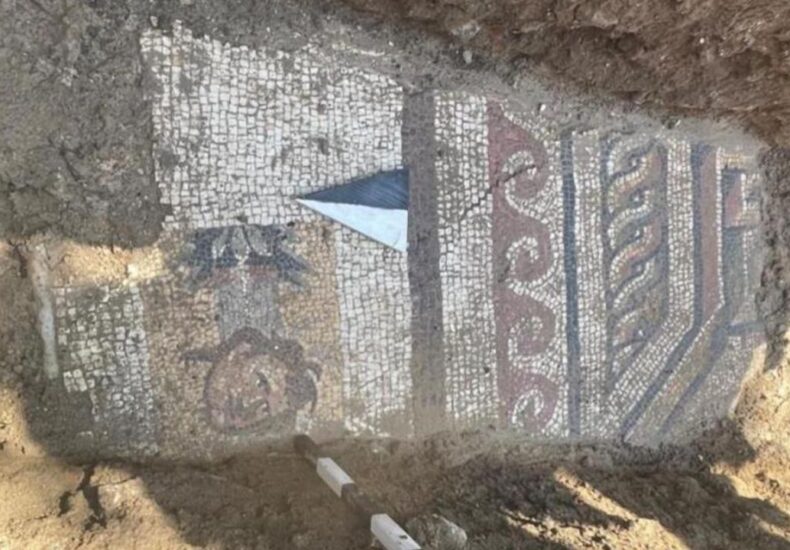
1,500-Year-Old Roman Mosaic Discovered During Infrastructure Work in Southern Türkiye
A mosaic floor estimated to be around 1,500 years old has been uncovered during infrastructure work in the city of Kahramanmaraş, located in southern Türkiye. The discovery was made within the borders of the ancient city of Germanicia, during a reconstruction project on Tevfik Kadıoğlu Boulevard in the Bağlarbaşı neighborhood, part of the city’s post-earthquake

Royal Tomb Discovered in Ancient Gordion: Monumental Find Sheds New Light on King Midas’ Legacy
ANKARA, Türkiye – A groundbreaking archaeological discovery has emerged from the heart of Anatolia. In the ancient city of Gordion, a newly unearthed wooden burial chamber—believed to belong to the Phrygian royal family—has captivated historians and archaeologists worldwide. Announced by Turkey’s Minister of Culture and Tourism, Mehmet Nuri Ersoy, the find is being hailed as
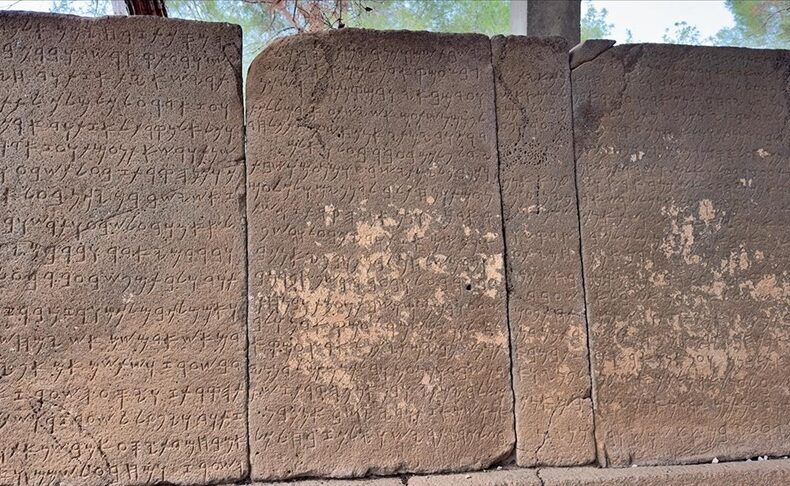
The Karatepe Inscriptions in the UNESCO Memory of the World Register May Help Decipher Ancient Civilizations
The Karatepe Inscriptions, located in the Kadirli district of Osmaniye, Türkiye, and listed in the UNESCO Memory of the World Register, continue to shed light on ancient civilizations through ongoing archaeological research. Associate Professor Dr. Faris Demir of Osmaniye Korkut Ata University emphasizes the global importance of these bilingual inscriptions. Found in the open-air museum
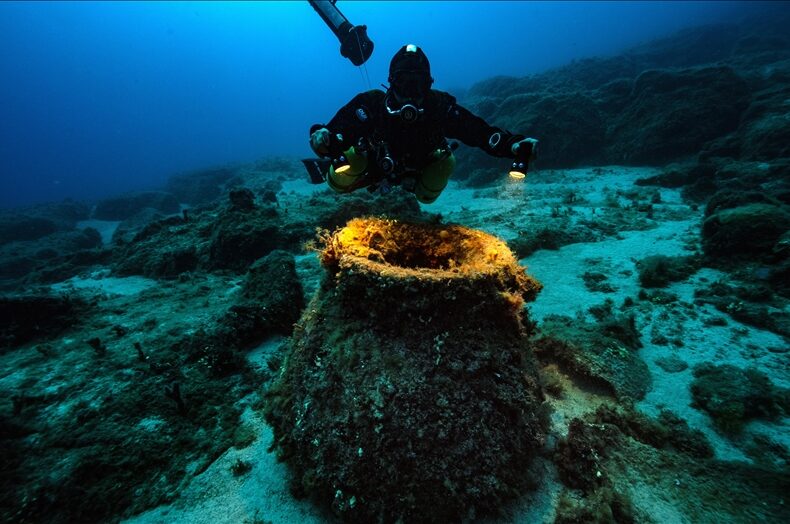
Shipwreck Discovered Near Türkiye’s Besmi Island Reveals Ancient Trade Secrets Beneath the Waves
Off the southern coast of Türkiye, the turquoise waters of Kaş have once again revealed a stunning archaeological treasure—this time in the form of a centuries-old shipwreck near Besmi Island, a historic waypoint on ancient maritime trade routes. Nestled between Türkiye’s Kaş district and Greece’s Kastellorizo (Meis) Island, Besmi Island has long attracted archaeologists and
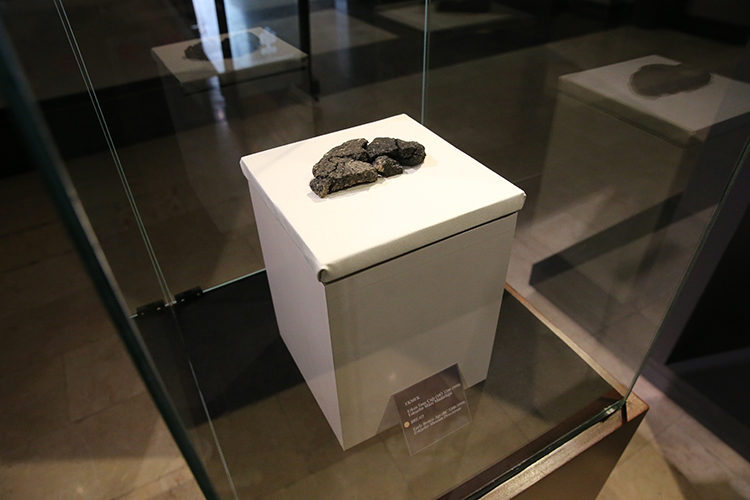
5,000-Year-Old Loaf of Bread Found in Küllüoba Mound Is on Display
A rare 5,000-year-old loaf of leavened and baked bread, discovered in the Küllüoba Mound located in central Türkiye’s Eskişehir province, is now on public display at the ETİ Archaeology Museum as part of the International Museum Day exhibition. The bread, unearthed during long-term archaeological excavations that have been ongoing since 1996, is considered the earliest

